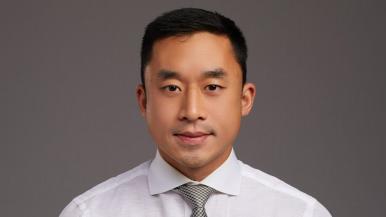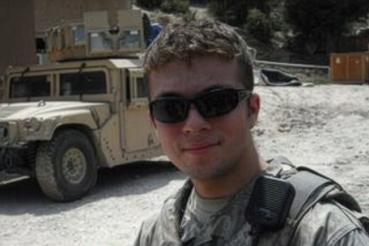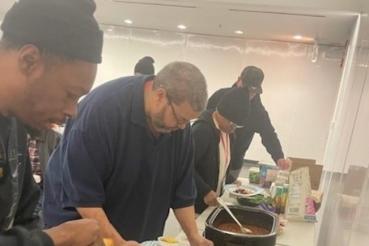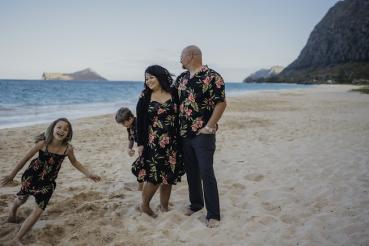Isolation. Loneliness. Two pressing issues that seemed so foreign to my own existence displayed themselves so evidently on Vancouver’s skid row. I remember walking through it as a child: The pungent smell of sodden trash penetrated the air, used syringes littered the sidewalk, bodies sprawled alongside the perimeter of buildings.
My mother was a street minister, and her mission was to provide for the less fortunate, offering warm meals and community housing. Witnessing her selflessness and compassion for the homeless people of Vancouver's troubled Downtown Eastside neighborhood taught me to appreciate others and to treat all with compassion and grace.
Mom educated me about Vancouver's heroin epidemic and how childhood abuse and neglect can lead to a spiraling path of substance use, dependence and homelessness. I recognized the destructive potential of addiction at an early age and realized how blessed I was. Not only did I have a family that provided shelter and meals, but also one that openly expressed support, love and affection.
My mother taught me how to care for the underprivileged, to see beyond appearance, to break through stereotypes. Unbeknown to her, her example and lessons would be the driving force in my pursuit of medicine and my perspective on substance dependency.
Vulnerable patient population
I now am an emergency medicine physician, a role that, much like my mother’s work, provides me with a firsthand, up-close view of the ills of society. While this view can be harrowing, I am drawn to the specialty because of the broad skill set I get to use to manage undifferentiated medical emergencies, and the opportunity to provide care to a diverse and often vulnerable patient population. I take pride in my specialty and my colleagues who work with me on the front lines.
However, becoming the doctor I want to be required a reassessment, and learning a crucial lesson that resulted from my lifelong interest in care for people with substance use disorders. During my emergency medicine residency training at Rush, I observed systemic challenges in the practice of medicine, which incentivizes productivity.
High throughput became a priority, and I received praise for safely managing large numbers of patients. I developed competency but felt a sense of disconnect. With limited time at the bedside and little continuity in patient care, I found it difficult to establish meaningful connections during patient encounters. At times I felt I was gathering and processing data to treat a disease process instead of a whole person.
I found myself questioning the purpose of my physician role and the values that initially brought me to medicine. Losing a close friend to opioid overdose, observing ongoing increases in overdose rates, and my mother’s continuing influence led me to a fellowship in addiction medicine at Rush, which I will complete in June.
Feeling empowered
While preventive medicine is not typically in the wheelhouse of emergency medicine education, one of the most valuable skills I learned in my fellowship was to ask if patients want help. This simple question shifted my perspective on my duties from a stabilize and disposition focus to exploring the social determinants of a patient’s condition and the quality of a human life.
Instead of simply discharging a patient with a Narcan prescription and a clinic follow-up appointment after medically stabilizing an unintentional overdose, I learned to explore a patient’s reasons for using drugs along with their concerns, goals and preferred treatment options. By integrating such components into shared decision-making, I felt empowered to take better care of my patients.
As I became aware of my inherent biases and stigmatizing, I naturally became a better advocate for my patients. This change in turn has brought me greater fulfillment in my role as a physician and led to improved job satisfaction.
I feel a sense of purpose by seeing past their substance use and helping patients in their recovery. The satisfaction from observing patients restore meaningful relationships, employment, the capacity to communicate and ultimately improve their physical health is central to my experiences as a physician.
Making a difference
I’ve developed a deeper appreciation of mental health difficulties and substance misuse, enhancing my ability to recognize these conditions, initiate treatment, and provide appropriate follow-up. Importantly, I am better able to educate and empower my Emergency Department colleagues to improve their care for substance-related injuries.
While I treat a different patient population than most physicians, I urge all physicians to guard against prioritizing speed and productivity at the expense of these kinds of connection. Moving quickly is not only dangerous to patient care but dangerous to a physician’s wellness. It was never the reason we choose to become doctors. It can easily detract from the inherent values that led most of us to a career in medicine.
I urge medical students, residents and attendings to remember your calling to the field of medicine daily as you enter the clinical arena. Be patient with your patients. Listen and identify their goals and concerns. Work together as a team to make the best decision. And go home happy knowing you made a difference.




